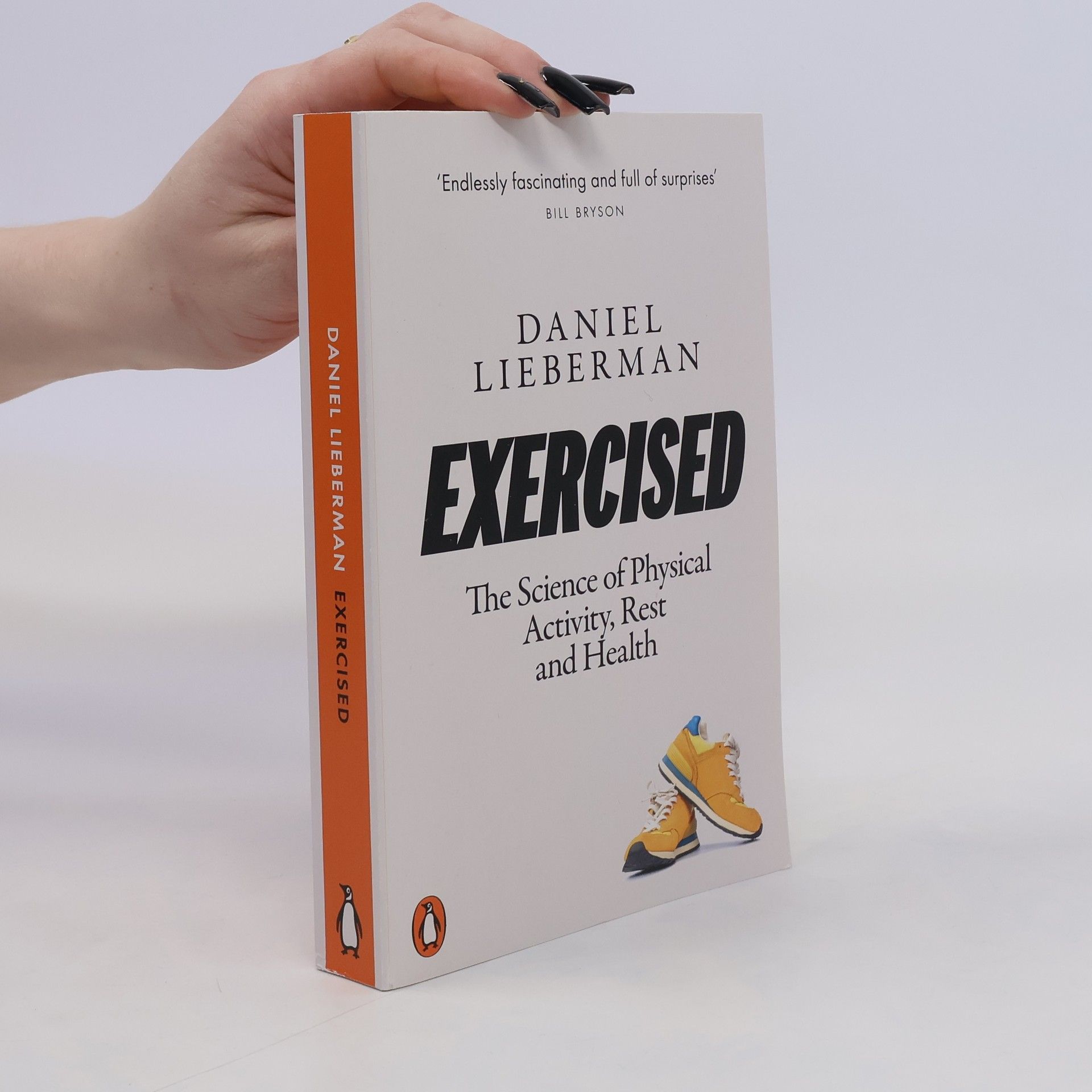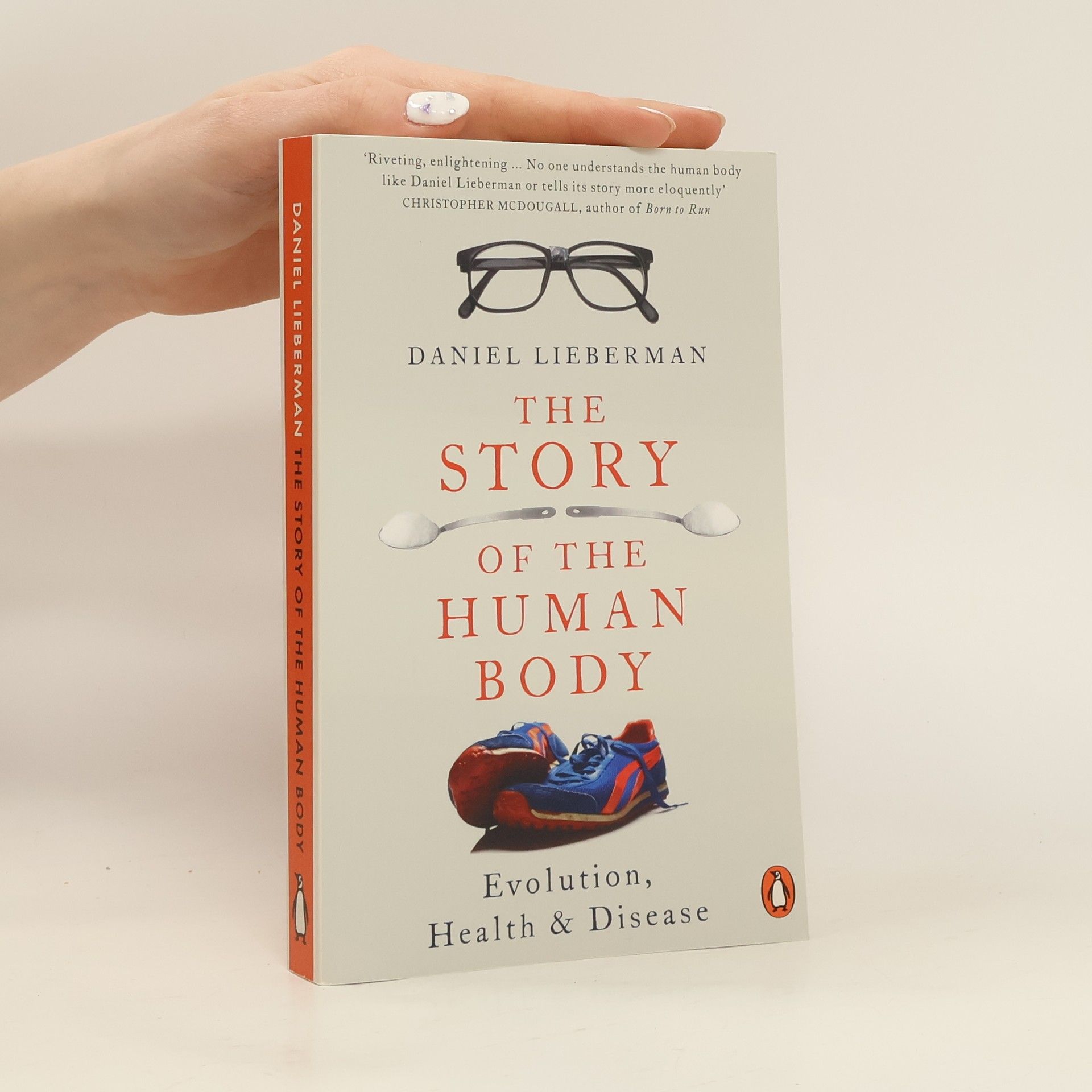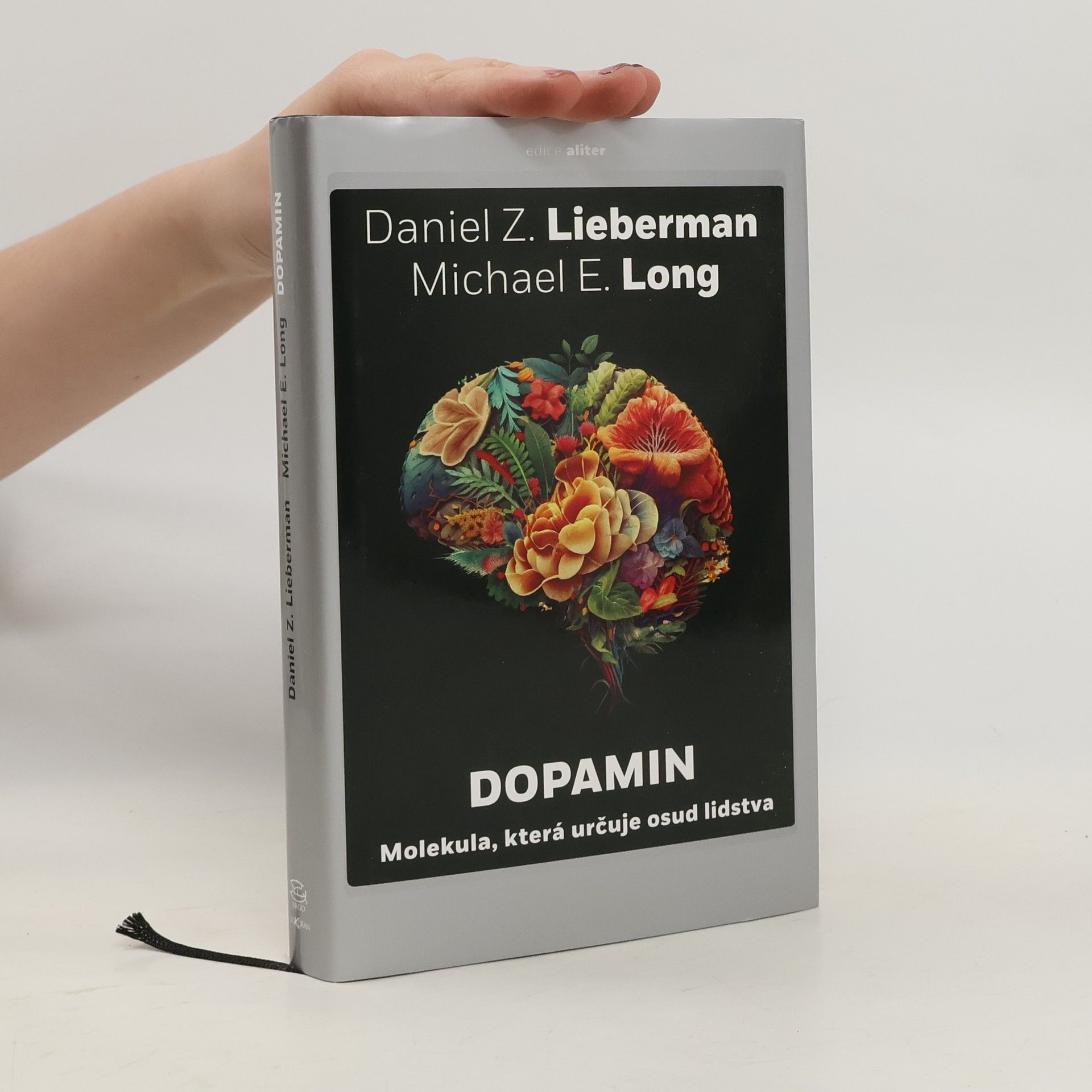Zaskakujące, kompetentne i odkrywcze spojrzenie na historię naturalną aktywności fizycznej zmienia nasze postrzeganie ciała. Jeśli aktywność fizyczna jest zdrowa, dlaczego wiele osób jej unika? Daniel Lieberman, profesor biologii ewolucyjnej na Uniwersytecie Harvarda, wyjaśnia, że nigdy nie ewoluowaliśmy do ćwiczeń jako dobrowolnej aktywności dla zdrowia. W oparciu o badania i doświadczenia z całego świata, Lieberman pokazuje, jak i dlaczego człowiek ewoluował, aby chodzić, biegać, kopać i wykonywać inne niezbędne czynności fizyczne, unikając zbędnego wysiłku. Książka jest zarówno zajmująca, jak i pouczająca, oferując konstruktywne podejście do problemu siedzącego trybu życia, który przyczynia się do wzrostu otyłości i chorób. Lieberman, opierając się na biologii i antropologii, podpowiada, jak „uprzyjemnić” ćwiczenia, zamiast obwiniać za ich unikanie. Porusza również kwestię nadmiernego ćwiczenia i wyjaśnia, dlaczego aktywność fizyczna może zmniejszyć podatność na choroby pogarszające dobrostan. „Nieskończenie fascynująca i pełna niespodzianek lektura”, mówi Bill Bryson, podkreślając wiedzę, dowcip i entuzjazm autora.
Daniel Z. Lieberman Book order (chronological)
Daniel Z. Lieberman explores the intricacies of behavior and the human mind, drawing on extensive psychiatric experience to illuminate complex psychological phenomena. His work, informed by a deep engagement with classic texts, delves into the nature of human behavior with profound insight. Lieberman's approach blends scientific rigor with a commitment to making complex ideas accessible. He aims to offer readers a clearer understanding of the psychological forces that shape our lives.







Elektryzujące odkrycia na temat pojedynczej cząsteczki chemicznej w mózgu, która popycha nas do tego, by osiągać to, co niezdobyte i odległe czy chodzi o lot na Księżyc, solniczkę po drugiej stronie stołu, czy zbliżenie do absolutu. Cząsteczka ta skłania nas do realizacji coraz to nowych celów. Jest źródłem kreatywności, a jeśli posuniemy sie za daleko obłędu. MIŁOŚĆ: Znalazłeś osobę, na którą od zawsze czekałeś, czemu więc miesiąc miodowy nie trwa wiecznie? Czyli o cząsteczkach chemicznych odpowiedzialnych za pragnienie seksu i zakochiwanie się a także o tym, czemu prędzej czy później wszystko sie nudzi NARKOTYKI: Pragniesz wrażeń ale czy to dobrze? Czyli dopamina wygrywa z rozsądkiem, wzbudzając palące pożądanie tak destruktywnych zachowań KONTROLA: Jak daleko się posuniesz, by zapanować nad otoczeniem? Czyli dopamina rządzi TWÓRCZOŚĆ I SZALEŃSTWO: Zagrożenia i korzyści dla mózgu wybitnie podatnego na działanie dopaminy Jak dopamina przełamuje bariery pospolitości POLITYKA: Dlaczego nie możemy sie po prostu dogadać? Jak środki do dezynfekcji rąk wpływają na nasze poglądy polityczne POSTĘP: Co sie dzieje, gdy sługa zmienia sie w pana? Jak dopamina zapewniła ludziom pierwotnym przetrwanie, a rodzajowi ludzkiemu gwarantuje teraz zagładę. Mick Jagger, Bob Dylan, Brian Wilson, John Nash, Albert Einstein, Friedrich Kekul u wszystkich nich widać różne aspekty działania dopaminy
Elektryzujące odkrycia na temat pojedynczej cząsteczki chemicznej w mózgu, która popycha nas do tego, by osiągać to, co niezdobyte i odległe czy chodzi o lot na Księżyc, solniczkę po drugiej stronie stołu, czy zbliżenie do absolutu. Cząsteczka ta skłania nas do realizacji coraz to nowych celów. Jest źródłem kreatywności, a jeśli posuniemy sie za daleko obłędu. MIŁOŚĆ: Znalazłeś osobę, na którą od zawsze czekałeś, czemu więc miesiąc miodowy nie trwa wiecznie? Czyli o cząsteczkach chemicznych odpowiedzialnych za pragnienie seksu i zakochiwanie się a także o tym, czemu prędzej czy później wszystko sie nudzi NARKOTYKI: Pragniesz wrażeń ale czy to dobrze? Czyli dopamina wygrywa z rozsądkiem, wzbudzając palące pożądanie tak destruktywnych zachowań KONTROLA: Jak daleko się posuniesz, by zapanować nad otoczeniem? Czyli dopamina rządzi TWÓRCZOŚĆ I SZALEŃSTWO: Zagrożenia i korzyści dla mózgu wybitnie podatnego na działanie dopaminy Jak dopamina przełamuje bariery pospolitości POLITYKA: Dlaczego nie możemy sie po prostu dogadać? Jak środki do dezynfekcji rąk wpływają na nasze poglądy polityczne POSTĘP: Co sie dzieje, gdy sługa zmienia sie w pana? Jak dopamina zapewniła ludziom pierwotnym przetrwanie, a rodzajowi ludzkiemu gwarantuje teraz zagładę. Mick Jagger, Bob Dylan, Brian Wilson, John Nash, Albert Einstein, Friedrich Kekul u wszystkich nich widać różne aspekty działania dopaminy Powyższy opis pochodzi od wydawcy.
Psychiatrist Daniel Z. Lieberman, MD, reveals how to join forces with your unconscious to make better decisions, find more meaning in everyday life, and develop a richer, more balanced way of living.
Dopamin
- 304 pages
- 11 hours of reading
Proč jsme tak posedlí věcmi, po nichž toužíme, ale po jejich dosažení o ně rychle ztratíme zájem? Jak to, že se vášeň tak rychle mění ve lhostejnost? Z jakého důvodu tolik lidí upadá do pasti závislostí? A proč lidé neztrácejí naději ani v těch nejhorších časech a umí skvěle řešit obtížné situace? Odpověď skrývá jedna jediná chemická látka v našem mozku: dopamin. Daniel Z. Lieberman a Michael E. Long ve své knize rozebírají roli této zásadní molekuly v navazování vztahů a vzniku závislostí na drogách i sexu nebo její význam pro schopnost plánovat. Líčí také souvislost dopaminu s kreativitou a šílenstvím či jeho možnou spojitost s politickým přesvědčením. Dopamin podle autorů do značné míry definuje lidské chování a má rovněž zásadní podíl na evolučním úspěchu lidstva během posledních desítek tisíc let. Zároveň ale s nástupem nejnovějších technologií představuje pro náš druh i smrtelné riziko, pokud se nebudeme snažit z jeho pevného, avšak neodolatelně svůdného stisku alespoň částečně vymanit. Vychází ve spolupráci s nakladatelstvím Argo.
In industrialized nations, our sedentary lifestyles have contributed to skyrocketing rates of obesity and diseases like diabetes. A key remedy, we are told, is exercise - voluntary physical activity for the sake of health. However, most of us struggle to stay fit, and our attitudes to exercise are plagued by misconceptions, finger-pointing and anxiety. But, as Daniel Lieberman shows in Exercised the first book of its kind by a leading scientific expert, we never evolved to exercise. We are hardwired for moderate exertion throughout each day, not triathlons or treadmills. Drawing on over a decade of high-level scientific research and eye-opening insights from evolutionary biology and anthropology, Lieberman explains precisely how exercise can promote health; debunks persistent myths about sitting, speed, strength and endurance; and points the way towards more enjoyable and physically active living in the modern world.
Exercised
- 464 pages
- 17 hours of reading
Why do we often avoid physical activity despite being born to walk and run? This myth-busting exploration addresses common questions: Does running damage our knees? Should we focus on weights, cardio, or high-intensity training? Is sitting truly the new smoking? Can walking aid in weight loss? With a wealth of conflicting information about rest and exercise, Daniel Lieberman, a Harvard evolutionary biology professor, reveals that humans did not evolve to exercise for health's sake. Instead, he shares insights from his research and global experiences, explaining how we evolved to engage in necessary physical activities while avoiding unnecessary exertion. This engaging narrative not only entertains but also offers constructive solutions to combat the sedentary lifestyles that have led to rising obesity and diseases like diabetes. Lieberman argues that to encourage more activity, we must shift our approach from medicalizing and commodifying exercise to making it enjoyable. He also explores the limits of exercise and its role in reducing our susceptibility to major health issues, ultimately advocating for a more positive relationship with physical activity.
Ein Hormon regiert die Welt
Wie Dopamin unser Verhalten steuert - und das Schicksal der Menschheit bestimmt
- 256 pages
- 9 hours of reading
The Molecule of More
- 240 pages
- 9 hours of reading
Dopamine ensured the survival of early man. Thousands of years later, it is the source of our most basic behaviors and cultural ideas--and progress itself. The authors examine how human life has an unconsidered component that explains an array of behaviors previously thought to be unrelated.ated.
The story of the human body : evolution, health and disease
- 480 pages
- 17 hours of reading
This book explores how the way we use our bodies is all wrong. From an evolutionary perspective, if normal is defined as what most people have done for millions of years, then it's normal to walk and run 9-15 kilometers a day to hunt and gather fresh food which is high in fibre, low in sugar, and barely processed. It's also normal to spend much of your time nursing, napping, making stone tools, and gossiping with a small band of people. Our 21st-century lifestyles, argues Dan Lieberman, are out of synch with our stone-age bodies. Never have we been so healthy and long-lived - but never, too, have we been so prone to a slew of problems that were, until recently, rare or unknown, from asthma, to diabetes, to - scariest of all - overpopulation. This book asks how our bodies got to be the way they are, and considers how that evolutionary history can help us evaluate how we use our bodies.

